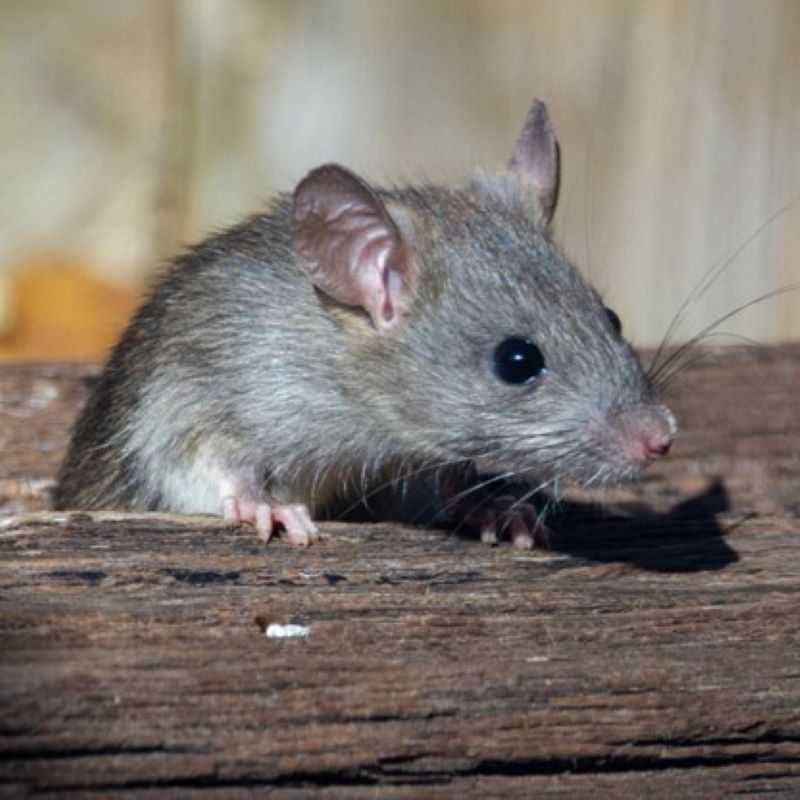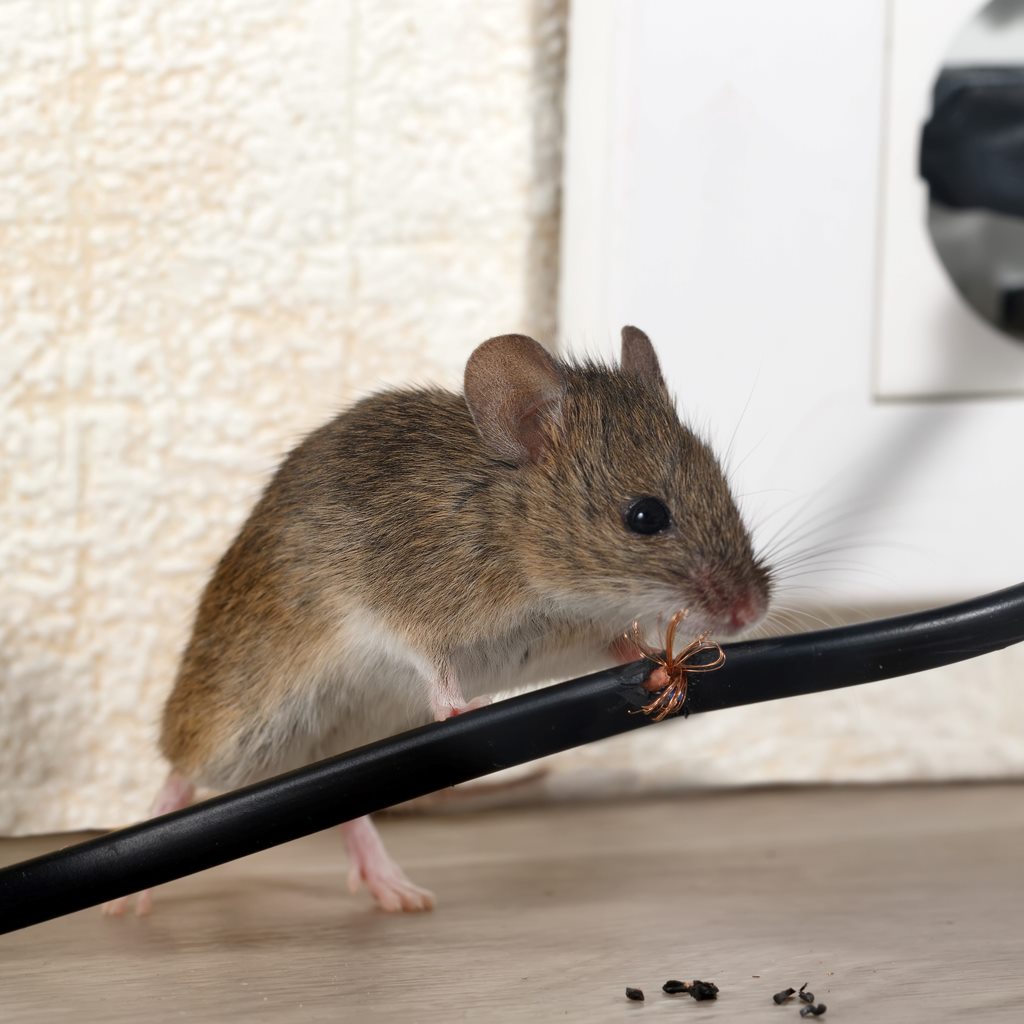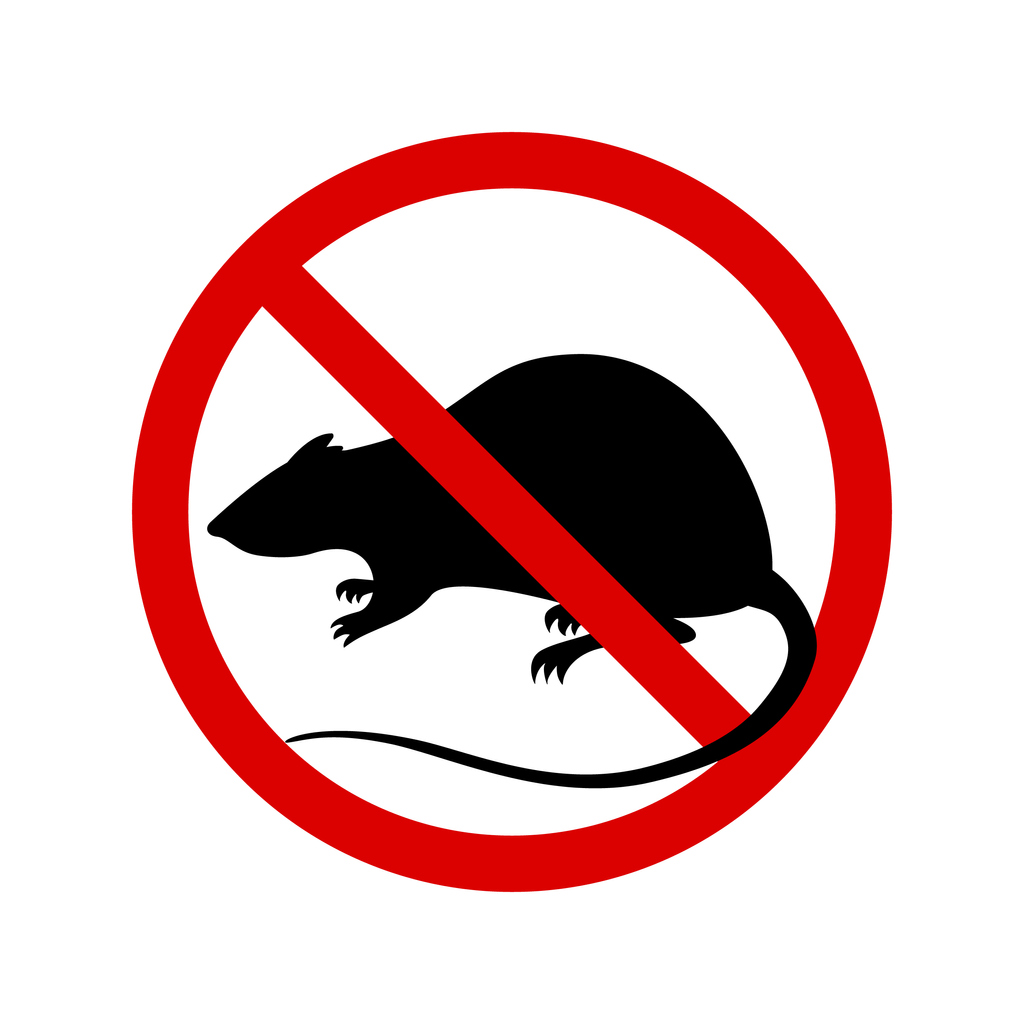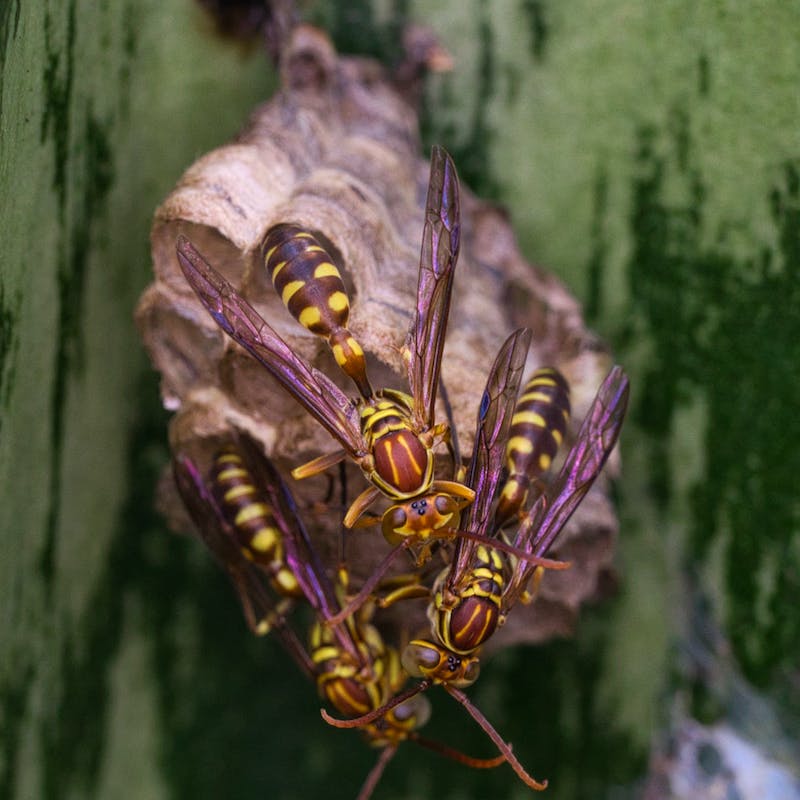
19 Nov 2023 | Trifecta Pest Solutions (UK) Ltd
Did you know that the estimated rat population in the UK alone is over 150 million? That’s nearly double the human population! This is an astounding number and it’s easy to see why so many people have problems with rat infestations in their gardens and homes.
But how do you know if you have a rat problem in your house? Luckily, there are a range of common signs of rats in your house including visual and auditory. I take a look at these below and what you can do if you suspect these furry critters have invaded your home.
Visual Signs
It won’t take long to notice rats in your house because they make so much mess and disturbance. Common visual signs of rats in your house include droppings, urine, gnawing, and grease marks.
Rat Droppings
Rat poop is the most obvious sign of rats in your house and these critters poop a lot! The droppings are typically ½” in size or smaller, are dark and shiny, and will be concentrated in a relatively wide area surrounding their nest. The droppings are often accompanied by urine which I describe below.
Rat Urine
Rat droppings are almost always accompanied by rat urine. This has a strong distinctive ammonia smell and it can be quite pungent. If you find droppings, try to avoid staying in the area too much as breathing in the fumes from the urine is one of the ways that disease can be transmitted. The urine is usually yellowish or dark and typically surrounds the droppings.
Gnawed Items and Wiring
Rats are expert demolishers and you will probably notice random damage and destruction throughout your house. They will regularly gnaw on hard materials like wood so you may notice gnaw marks and holes on your furniture or areas like your kitchen cupboards or loft beams.
Additionally, if you have loose cables and wiring, you may notice the outer plastic casing being chewed through.
Grease Marks
Rats naturally have greasy fur and coats and as they scurry around this grease will be transferred to the various surfaces in your home. You will notice dark staining around holes and this happens when they enter and exit and their fur rubs on the surface as they squeeze through.
Auditory Signs
Not only are rats messy but they are noisy too! If you are overrun with rats you will know about it due to the nocturnal noises and the scratching.
Noises During the Night
Rats are noisy and they are generally nocturnal so you will hear more activity at night. They are typically active between dawn and dusk and have great night vision so will easily be able to navigate through your house in the dark.
Scratching and Scurrying
The most common noises you hear are scratching and scurrying. This is the sound of the rat's claws tapping and scratching on various surfaces as they move, and the scurrying is when they are travelling together. You may hear various squeaking sounds too as the rats communicate with each other.
Health Risks

Rats are known to carry disease, indeed they were one of the main reasons why the plague spread so quickly during Europe in the Middle Ages. Today, rays may not carry the plague, but they can spread diseases directly to humans via their urine and droppings, including:
- Salmonellosis
- Rat-bite fever
- Monkeypox
- Hantavirus
- Lassa Fever
- Lyme disease
- Leptospirosis
Many of these diseases are life-threatening and can result in severe organ damage such as to the liver and kidneys. Fatalities from rat infestations are rarer but can happen, but either way, you don’t want any of these diseases!
Transmission is typically via inhalation of fumes from rat droppings and urine but can also be the result of rat bites.
Taking Action
You can take preventative steps to minimize the risk of rats in your house and this essentially boils down to cleanliness and accessibility. Specific things you can do include:
- Keep your house clean.
- Clear up any food leftovers.
- Keep your rubbish bins secure and clean.
- Make sure your garden is tidy and free from clutter.
- Cover any access areas to things like sheds, decking, and compost bins.
In terms of removal, if you find rats in your house, the best course of action is to seek professional help. Rat pest control isn’t something that should be attempted yourself due to the potential health risks. A professional extermination service can find the infestation and remove it safely.
Stay Vigilant And Look for Signs of Rats in Your House
The UK rat population is showing no signs of slowing down so it’s crucial to stay vigilant and look out for signs of rats in your house. You can also reduce the chance by keeping your house tidy, blocking up any access holes, and keeping your outdoor areas free of clutter and rubbish.


